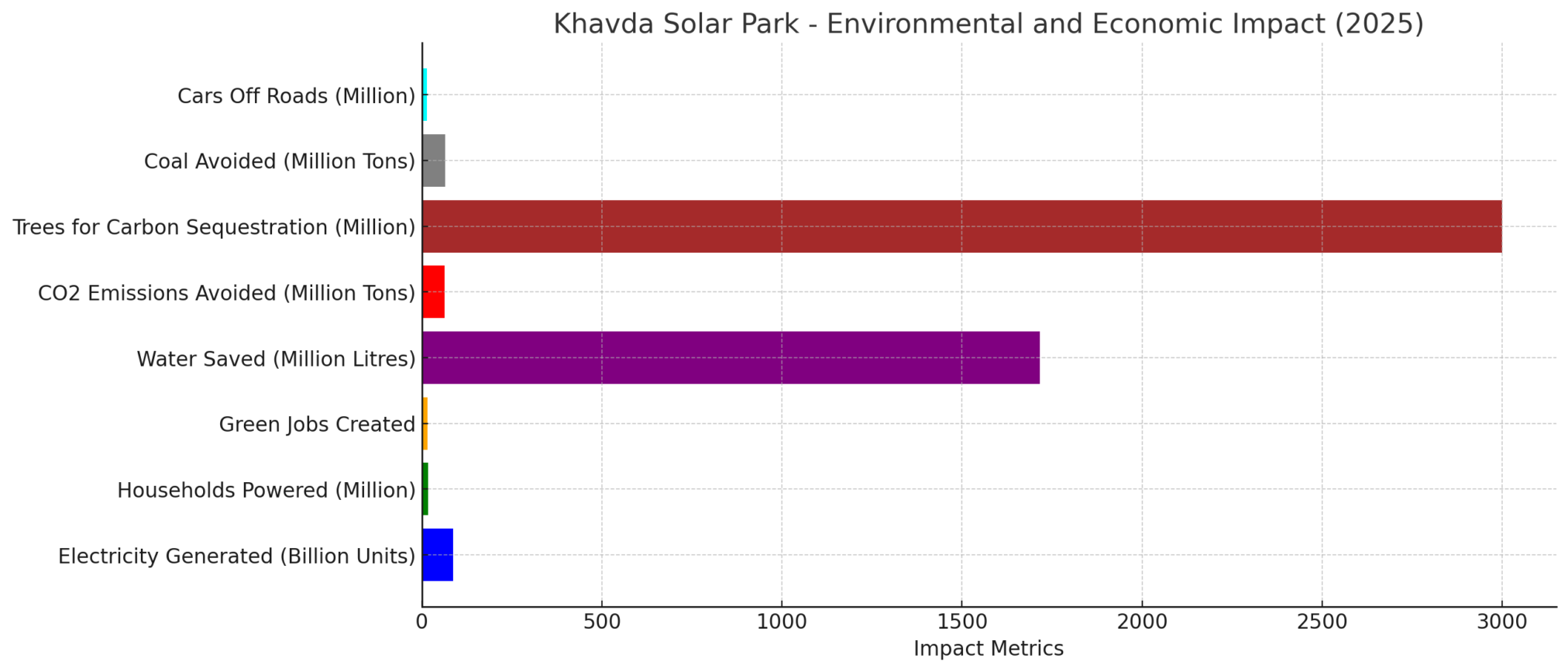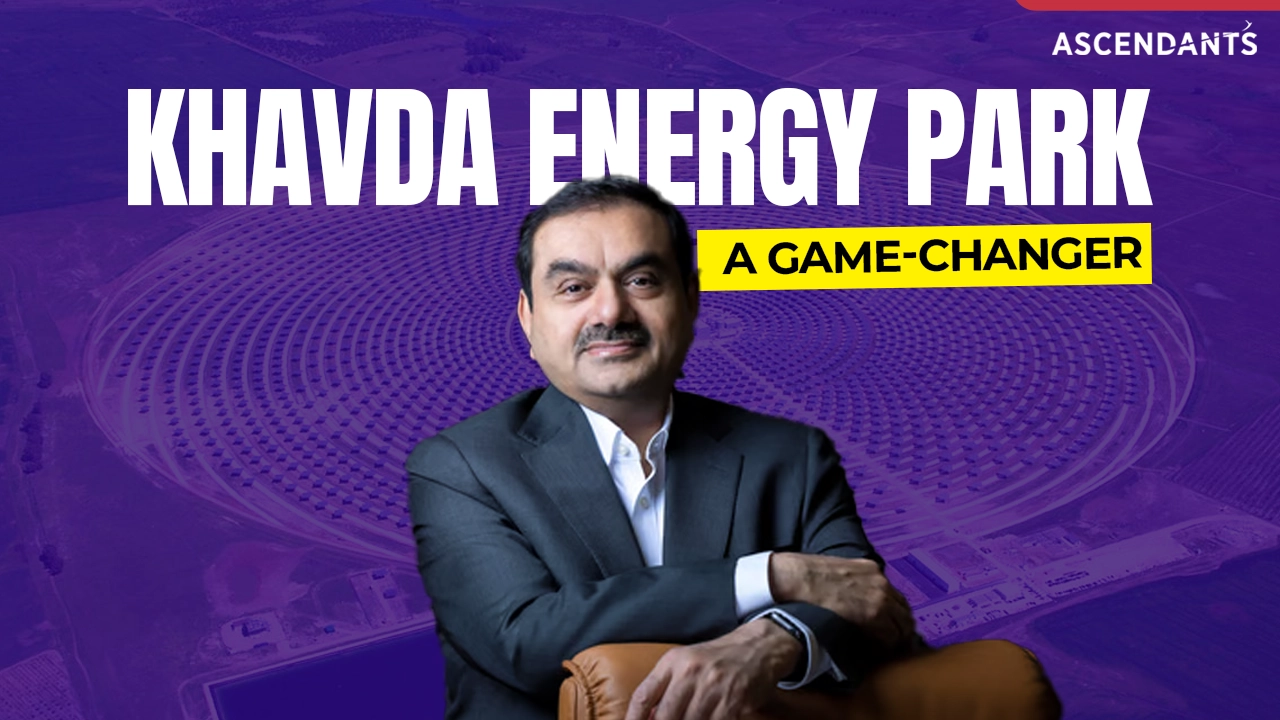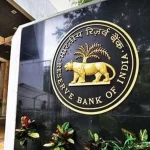In a historic breakthrough for India’s clean energy industry, Adani Green Energy Ltd. (AGEL) is leading the Khavda Energy Park, the largest renewable energy project in the world, in the Kutch district of Gujarat. This ambitious project will revolutionize India’s green energy profile, bring economic gains to surrounding communities, and reinforce India’s clean energy and sustainability drive.
Khavda Energy Park: A Bold Vision for Green India
The Khavda Renewable Energy Park, which covers an area of more than 538 square kilometres, will accommodate solar and wind power projects with a total capacity of 30 GW. The project fits into India’s vision of realizing 500 GW of non-fossil fuel energy capacity by 2030 as part of India’s net-zero carbon emissions objective by 2070.

This horizontal bar chart illustrates the environmental and economic footprint of the Khavda Solar Park in 2025. The project will produce 87.4 billion units of clean electricity, sufficient to supply 17.4 million homes—equivalent to whole countries. It will also prevent 63.6 million tons of CO2 emissions, the equivalent of removing 13.8 million cars from the road or planting 3,000 million trees. In addition to this, more than 15,200 green jobs will be generated, enhancing its sustainable development role.
Adani Green’s dedication to sustainability and big-ticket renewable infrastructure cements India’s global leadership in clean energy generation. The project will considerably reduce India’s reliance on fossil fuels, lowering carbon emissions by some 50 million metric tons annually.
Economic and Social Benefits for Neighboring Areas
Beyond its environmental impact, the Khavda Energy Park is a catalyst for economic growth in Kutch and surrounding regions. The project is expected to:
- Generate more than 15,000 direct and indirect employment opportunities, enhancing job prospects for local populations.
- Enhance regional infrastructure such as roads, connectivity, and facilities.
- Offer training schemes to the local labour force, enhancing skill development in renewable energy areas.
- Enhance the local economy through enhanced logistics, construction, and services business prospects.
The renewable power generated will also benefit energy-intensive industries, reducing electricity costs and enhancing India’s energy security.

Indian Government’s Strategic Border Security Approval & Political Controversy
The Indian government recently sanctioned border security relaxations for Adani Green’s Khavda project, facilitating the easier implementation of the project adjacent to the Pakistani Border (Sir Creek Line), where constructions were inhibited earlier, and eliminating bureaucratic roadblocks. This follows despite opposition from Congress and criticism of policy partiality.
However, specialists contend that speeding up renewable energy schemes is imperative to India’s energy security, and simplifying policy frameworks will facilitate speeding up the investment in green infrastructure. The government endorsement reflects its determination to ensure the fulfilment of clean energy objectives, making India a world leader in green energy development.
A Defining Moment for India’s Energy Future
Khavda Renewable Energy Park is not only a behemoth of renewable energy projects but also a testament to India’s vision of becoming a sustainable and prosperous country. Adani Green’s dream, with government support, has the ability to revolutionize the renewable energy landscape and usher in long-term advantages for the country’s domestic populace and the nation at large.
Thanks to the project’s success, India is moving closer towards a cleaner, energy-independent future and reasserting itself as a global leader in renewable energy development.








